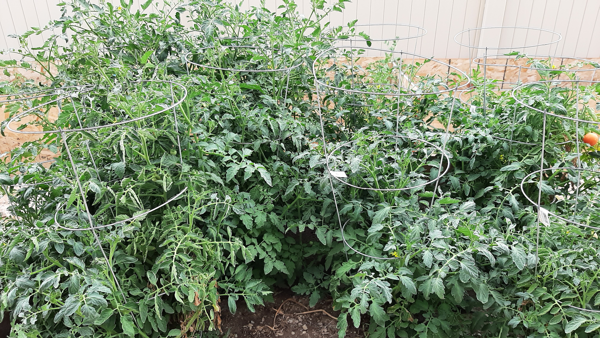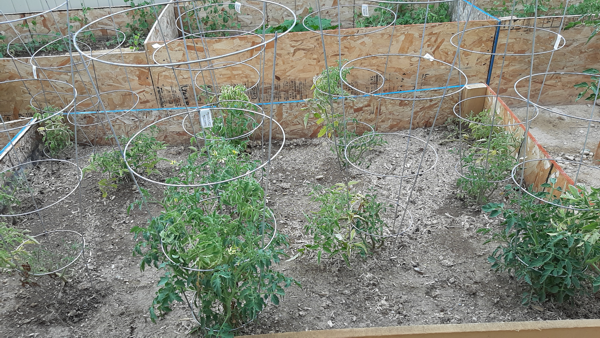Worms love grass clippings. Even more than that, worms love livestock manure. But there is one thing that makes feeding grass clippings and manure from unknown sources risky for the plants your compost will be applied to.
As I was walking one evening in a nearby park with my wife, I watched someone on the maintenance crew mowing the lawn on a riding lawn mower. At one point, he drove to the end of one of the walking paths in the park and dumped his load of grass clippings on the ground at the edge of the grass. Since I am expanding my worm herd, I took an interest. Finding enough organic matter to feed my worms is getting difficult. And there was a pile of organic matter just waiting to be fed to my worms…maybe.
I contacted the city to find out if it was OK to collect the grass clippings. I also asked about weed killers used on the grass. Yes, it is OK to gather the grass clippings. The grass is treated with a weed killer called Trimec 992.
Weed killers have become a problem for people who compost. Some weed killers persist in the soil, and are taken up by grass and other plants, including hay that is fed to livestock. Weed killers don’t break down during the digestion process, so they can sometimes be found in livestock manure. These weed killers don’t always break down during the composting process either. This means that compost, and vermicompost, that is made from grass clippings treated with weed killer or made from the manure of animals fed hay treated with weed killer could still have weed killer in it.
Many municipalities collect grass clippings and other yard waste and compost them, then sell the compost. Traces of weed killer are sometimes found in this compost. Home owners treat their lawns with weed killers, then put their grass clippings out for collection.
Only the least persistent weed killers are available for sale to home owners. Lawn services that treat lawns at private homes can use more persistent weed killers. Commercial operations, such as sod farms, golf courses and farms can use the most persistent weed killers. Even weed killers intended for home use can persist in the soil for months. The most persistent weed killers remain in the soil for more than a year.
Trimec 992 has 3 weed killers in it: 2,4-D, MCPP-p and dicamba. (This is also a common combination for weed killers used on residential lawns.) Of the 3, dicamba is the most persistent, and therefore the biggest problem. It can remain in the soil for up to a year, or longer. Now, the question is, is there a way to know if any of these chemicals are in any of the grass clippings that have been dumped in the park? Knowing when weed killer was last applied to the grass isn’t going to help. None of the piles of grass clippings are dated, it is difficult to determine which piles are the most recent, and any pile could have clippings from several mowings.
This leaves me with 3 options.
1) Assume any of the grass clippings are tainted, and don’t use any of them.
2) Take my chances, and use them.
3) Find a way to determine if the grass clippings are safe to use.
It turns out that there is a way to test the grass clippings, but it has its own risks. A positive test will tell me that the grass clippings have weed killer in them, but a negative test will only tell me that that particular sample is safe. There could be weed killer tainted clippings elsewhere in the same pile.
I finally decided not to use the grass clippings, even though it seems a shame to let all that compostable organic matter go to waste. I also made a note in my ShareWaste profile that I won’t take grass clippings from a lawn recently treated with weed killer.
Thinking back, I remember when I was growing tomatoes at my previous home. Every year, I applied a thick layer of compost to what was mostly clay soil. Every year, the soil improved, and the tomato plants grew larger and healthier. But after a few years, the tomato plants started looking sick. Given the amount of compost I was adding to the soil every year, I couldn’t possibly be depleting the soil.
Then I remembered that the problems with the tomato plants started about the same time as I discovered that a neighbor was running a lawn service. I started adding his grass clippings to my compost. Now, I believe that his grass clippings were tainted with weed killers, and the weed killers were not breaking down during the composting process. What I was seeing in my tomato plants was damage caused by residual weed killers.
More recently, my wife wanted to start a vegetable garden. I brought in some soil, and 2 loads of horse manure for the garden. It turns out that the second load of manure was tainted with herbicides.

